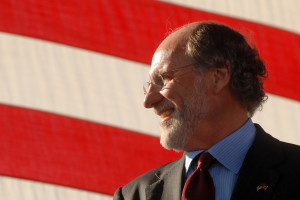Election '09: Mostly for the Media
 News networks obsess over elections. E-Day, Super Tuesday, Decision Day, Countdown to November, Countdown to the Primary, Countdown to February 5th, Countdown to Whatever. Why the fixation? Because elections are fun. They’re a competition. It’s CNN’s chance to act like ESPN; they get to guess and predict, they get to declare a winner and a loser, and they get a big scoreboard to play with.
News networks obsess over elections. E-Day, Super Tuesday, Decision Day, Countdown to November, Countdown to the Primary, Countdown to February 5th, Countdown to Whatever. Why the fixation? Because elections are fun. They’re a competition. It’s CNN’s chance to act like ESPN; they get to guess and predict, they get to declare a winner and a loser, and they get a big scoreboard to play with.
So when the polls closed last Tuesday and Election ’09 came to a close, you could barely say “projection” before the news networks began setting their sights on Elections 2010 and 2012. The big question: What does this mean for President Obama?
When the results were finalized and Republicans Bob McDonnell and Chris Christie had a nice, big checkmark next to their names, the appropriate spin story was obvious: “The elections were a referendum against the Obama agenda, and Obama and the Democrats now face an uphill elections battle.”
But just how seriously should this assertion be taken? Not very. As much as the pundits and pols enjoyed spending the night assessing on election implications (Will this sink the health care bill? Are the Democrats definitely going to lose their majorities in 2010 an 2012? Does this mean Obama is unlikely to win re-election in 2012?), their speculations and assertions hold little value. Exit polls – including the ones from the networks that advanced the electoral-implication story – all reflected that the vast majority of voters did not cast a ballot based on their opinion of President Obama and his agenda; they voted for and against the people who were actually on the ballot.
However, although most of the analysis of what Election ’09 means for the Democrats and President Obama can be viewed as news-network-hyperbole, some there are some true implications. In 2008, strong turnout and support among young voters and African-Americans was a major aid to then-Senator Obama and Democrats as a whole. In 2009, without Obama at the top of the ballot, these groups did not go to the polls in such high numbers. In 2010 Democratic members of Congress who were elected in 2008 with the support of these groups will face a tougher challenge drawing them out to the polls without Obama. The President and campaign-extraordinaire can come out to support these candidates, headlining fundraisers, speeches, and events. However, the 2009 election reflected the limits of this; Obama campaigned heavily for Corzine in New Jersey, but it did not have the needed impact of turning Democrats out on Election Day. So while Election ’09 did not reflect a national opinion of the job the President and the Democrats have been doing or the policies they support, it does show that the lack of Obama on the ballot could make 2010 a difficult election year for Democrats.